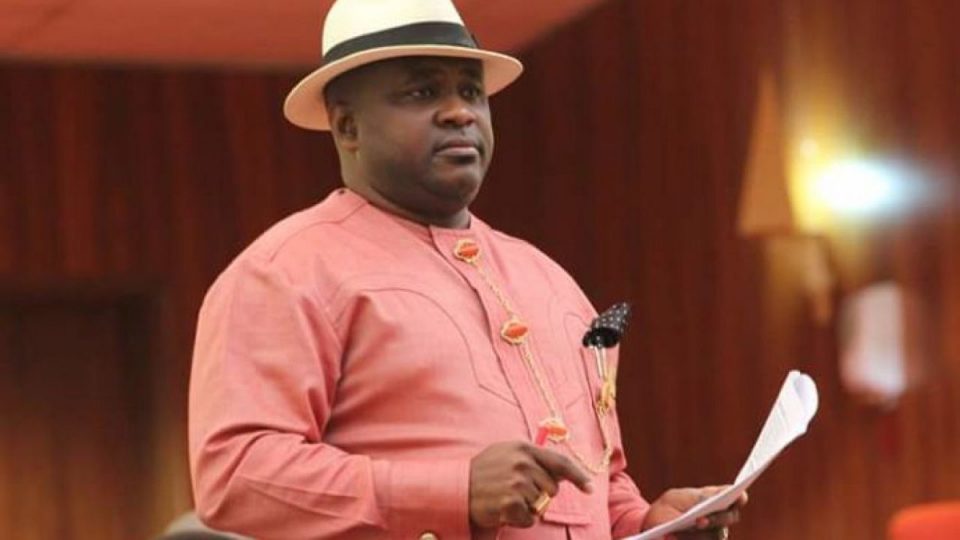The Senate on Thursday considered a bill which proposes stiffer sanctions for any person or corporate entity involved in gas flaring in Nigeria from Jan. 1, 2021.
The bill, sponsored by Sen. Albert Bassey Akpan (PDP -Akwa-Ibom N) scaled second reading during plenary.
“Clause 11(a) of the bill provides that, “Any person who flares gas after Dec 31, contrary to section 4 of the Act, commits an offence under this Act, and shall be liable on conviction to pay a fine which shall not be less than the cost of gas at the international market.”
Leading debate on the bill, Akpan recalled that the bill was passed by the 8th Senate in 2018.
He said the bill failed to receive concurrence by the House of Representatives due to time constraints as it was close to the end of the legislative session.
He said that the introduction of the bill by 9th Assembly, which promised guaranteed rapid infrastructural development of the oil and gas sector, would enhance revenue accruable to government and ensure environmental improvement for the people of the Niger Delta.
“The flaring of natural gas produce in association with crude oil is one of the most dangerous environmental and energy waste practices in the Nigerian petroleum industry.
“Gas flaring affects the environment and human health, results in economic loss, deprives the government of associated tax revenues and trade opportunities, and deprives consumers of a clean and cheaper energy source and environment,” Akpan added.
The lawmaker stated that available data from Nigerian National Petroleum Corporation (NNPC) showed that in 2018, Nigeria lost over N217 billion in revenue as oil and gas companies flared a total of 244.84 billion standard cubic feet (scf) of natural gas within the same period.
”With the average price of natural gas put at 2.90 dollars per 1,000 scf, he added.
According to the lawmaker, “The volume of flared gas according to analysis, is sufficient to feed 3 LNG trains or generate 3.5GW of electricity.”
Bassey explained that the bill when passed into law, would address the inadequacies and shortcomings of the 1979 Act.
He said the eventual passage would bring gas flare penalty in line with current economic realities; and ensure the achievement of the National Flares-out target of Jan.1, 2030.
“The current gas flare penalty of N10 per 1,000 scf is too low, and not in line with current economic realities and encourages continuous gas flaring by operators with its attendant negative effect on our environment, ” Akpan said.
“The Gas Flaring Prohibition and Punishment Bill 2020, according to the lawmaker, “seeks to increase the gas flaring penalty to an appropriate and commensurate level.
” It seeks to de-incentivise the practice of gas flaring, whilst introducing other market measures to encourage efficient gas utilization.
“The Bill equally makes it mandatory for operators to submit gas utilisation plan within 90 days of the commencement of the Act for effective monitoring and makes provision for a two year periodic: review of the Minister’s powers granted under the Act,” he added.
Citing U.S., he said that the bill also made specific provisions for installation of requisite gas flare meters equipped with facilities that enable real time, online data retrieval for independent reporting and monitoring by the industry regulator.
The President of the Senate, Ahmad Lawan, referred the bill to the Senate Committee on Gas for further legislative inputs.



